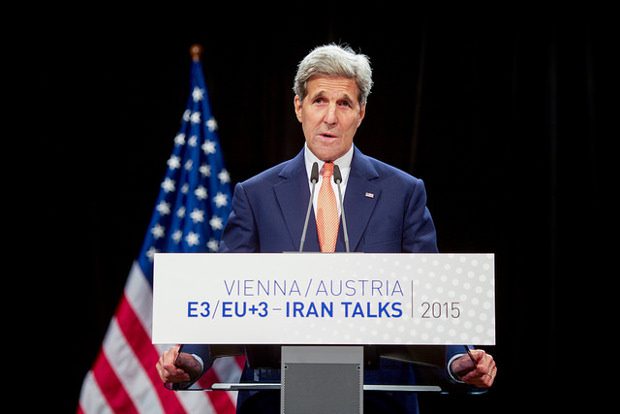The Folly of ‘Renegotiating’ the Nuclear Deal

Joe Lieberman and Mark Wallace predictably give Trump some terrible advice:
Like President-elect Donald Trump, we vigorously opposed the Iran nuclear agreement, so we sympathize with his promise to “dismantle” it. But we hope that he and his administration will first try to aggressively enforce and then renegotiate the deal beyond the confines of the nuclear issue to make it better for us and the world [bold mine-DL].
Lieberman and Wallace are both hard-liners who aren’t going to be satisfied with any deal that Iran would ever be willing to accept, so this is a fairly transparent call for Trump to wreck the deal that is already working in favor of pursuing an imaginary one that can’t be had. Renegotiating a nonproliferation agreement so that it includes things “beyond the confines of the nuclear issue” is an obvious non-starter for Iran, and attempting to broaden the deal to include other issues is virtually guaranteed to blow up the existing agreement. The entire proposal is obviously being made in bad faith, which is consistent with how most Iran hawks have argued against the deal from the start.
The authors tip their hand from the beginning when they write this:
Before such renegotiations begin, the Trump administration could strengthen its hand by closely consulting with our allies in Iran’s neighborhood — Israel and the Arab states. They were missing from the group that developed and consented to the Joint Comprehensive Plan of Action (JCPOA), as the agreement is formally known. That was wrong, for two main reasons: because the Arab states and Israel are our allies and the Iranians are not, and because the countries in the region have the greatest equities at stake and should have a significant voice in the outcome.
There are many good reasons why these states were missing from the “group” responsible for negotiating the agreement. None of them belonged to the EU 3 that had previously negotiated with Iran, nor are any of them permanent Security Council members. Including them (especially Israel and Saudi Arabia) in the process presumably would have made Iran abandon the talks, and since these governments have all professed opposition to any achievable deal in the past their involvement would have been worse than useless. Unless one wants diplomacy to fail (as Lieberman and Wallace obviously do), one would not include known saboteurs in the process. Clearly, this wouldn’t strengthen the U.S. position, but would instead ensure that negotiations go nowhere.
They continue with a flat-out lie:
To date, the Iranian regime has made clear it has no intent to honor the spirit or letter of the JCPOA.
On the contrary, Iran has been complying with the terms of the agreement, and the IAEA has certified that compliance. They say that Iran has exceeded its “allotment of heavy water,” but the IAEA just reported that they are once again under the limit. Whether they are honoring the “spirit” of the agreement is debatable, and depends on what one thinks the “spirit” of it is. Since this accusation is coming from people that are fervently hostile to the agreement and never wanted it to be made, it is a little hard to take this complaint seriously. Every recommendation the authors make shows that they have no interest in honoring the deal, and are looking for ways to blow it up.